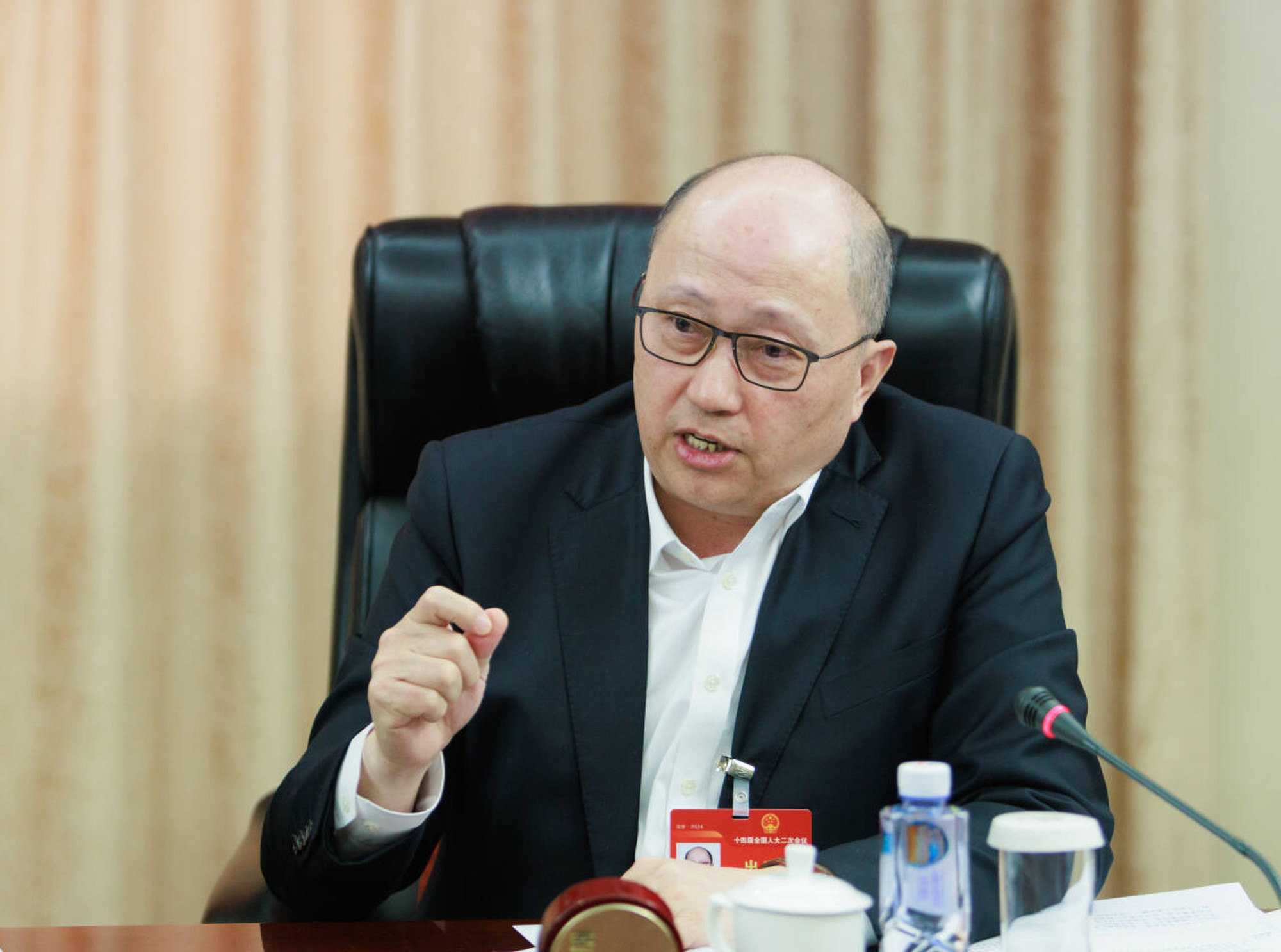
Hong Kong should use its ‘super roles’ to help nation become financial powerhouse, top Beijing official in city says
- Liaison office chief Zheng Yanxiong says city is ‘super treasure bowl’ for amassing capital and ‘superconnector’ aligned with global regulations
- City’s status as international financial centre is ‘precious asset and an important component in the country’s efforts to become a financial powerhouse’, he adds
The call from Zheng Yanxiong, director of the central government’s liaison office in the city, on Tuesday echoed an earlier one from Chinese Premier Li Qiang, who used his work report to encourage Hong Kong to “play to its distinctive strengths” and take on the role of better integrating with national development.
“Hong Kong’s status as an international financial centre is not only the city’s signature, but also a precious asset and an important component in the country’s efforts to become a financial powerhouse,” Zheng said.
The official issued the call to action at a meeting in Beijing with Hong Kong delegates to the National People’s Congress (NPC), the country’s legislature, as they reviewed Li’s report.

“Hong Kong is a ‘super treasure bowl’ that gathers international financial capital, a ‘superconnector’ that aligns international financial rules and also a ‘super support point’ that manages external financial relations,” the liaison office chief said.
Zheng emphasised that finance was the lifeblood of the country’s economy, a crucial element in building a strong nation.
He highlighted Chinese President Xi Jinping’s repeated calls for Hong Kong to consolidate and enhance its status as an international financial centre and urged the city to “be energised, astute and take action” in deepening global financial cooperation, preventing and resolving related risks, as well as boosting its competitiveness and the confidence of international investors.
He also called on the city to be more proactive in the promotion of innovation-driven growth during a period of historic opportunities created by the country’s quest for high-quality development and supported by “new quality productive forces”.
The phrase, which appeared in this year’s work report for the first time, is a reference to the use of technological innovation to drive productivity.
Zheng said Hong Kong was fertile ground for the development of such forces as it had the foundation, conditions, unique advantages and practical need for them. He also urged the city not to miss out on the opportunity.
Lau Siu-kai, a consultant at Beijing’s semi-official think tank, the Chinese Association of Hong Kong and Macau Studies, said that finance made up the bulk of the city’s contributions to the country.
The analyst suggested Hong Kong could play to its super roles by providing more financial products in its stock and bond markets to help internationalise the yuan – part of an effort by the country to better tackle global financial risks.
Lau said Hong Kong should also take the initiative and liaise with more countries eyed by Beijing in its plan to strengthen regional cooperation.
He singled out the Regional Comprehensive Economic Partnership, a free-trade agreement between the Association of Southeast Asian Nations and Australia, China, Japan, New Zealand and South Korea as an example.
Economist Simon Lee Siu-Po, an honorary fellow at the Asia-Pacific Institute of Business at the Chinese University of Hong Kong, said there should be specific incentives for foreign companies and funds to help lure them to the city and boost its internationalisation.
“Hong Kong used to focus more on attracting mainland companies, but ignored the markets in Asean and the Middle East,” Lee said. “It’s a bit late now and it takes time to catch up.
He appealed to government officials to be realistic and familiarise themselves with the realities of foreign markets.
But Jonathan Choi Koon-shum, the chairman of the Sunwah Group, a Hong Kong-based conglomerate and who is at the annual sessions of the Chinese People’s Political Consultative Conference National Committee, the country’s top advisory body, said the financial sector should not be the only area of focus for Hong Kong.
“The city should work on achieving balanced development …. and, personally speaking, I think technology is the city’s future,” he said.
Attendees at Tuesday’s meeting also included officials from the country’s General Administration of Customs, the NPC Financial and Economic Affairs Committee, the General Office of the State Council, the National Development and Reform Commission, and the Ministry of Finance.

